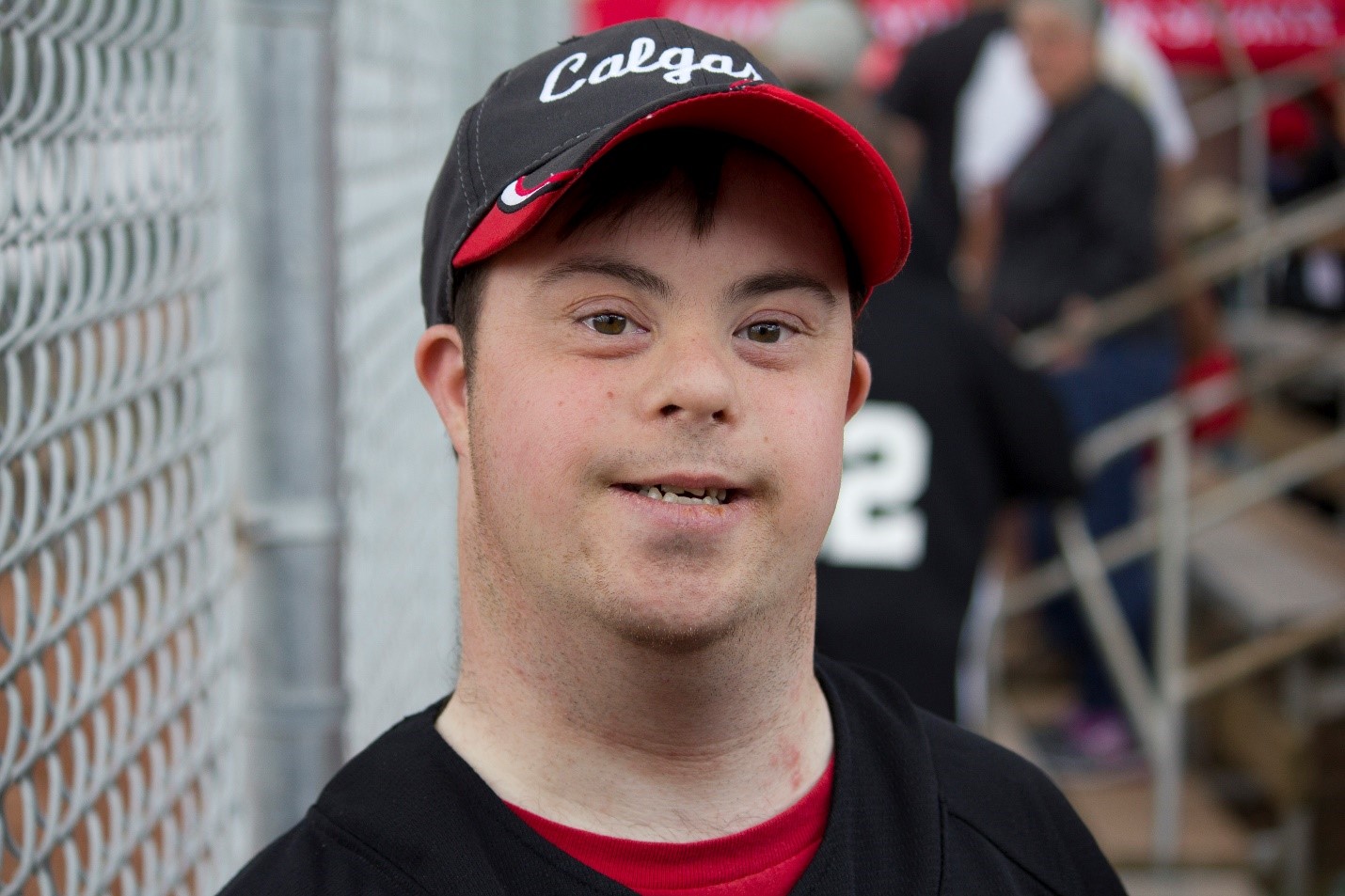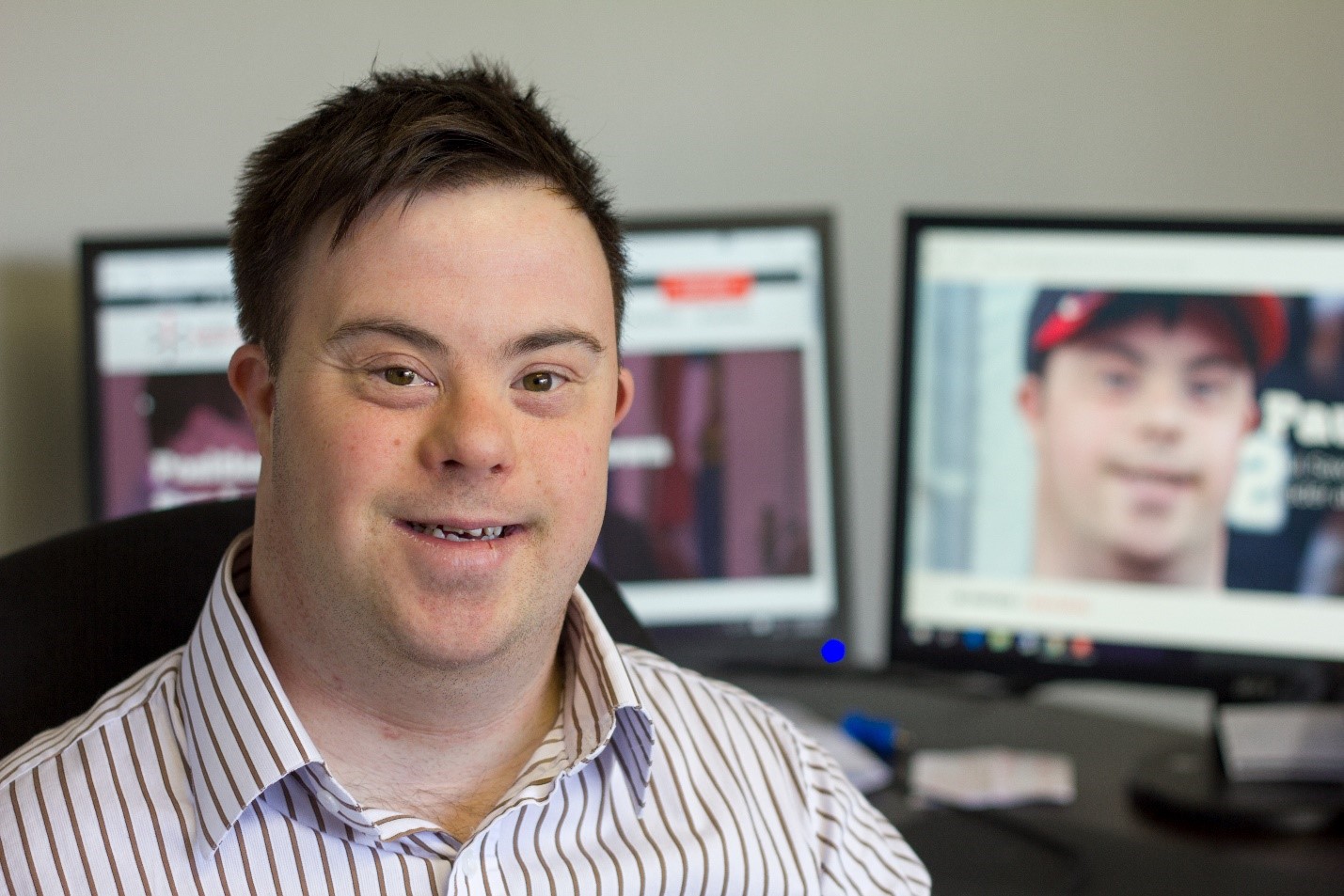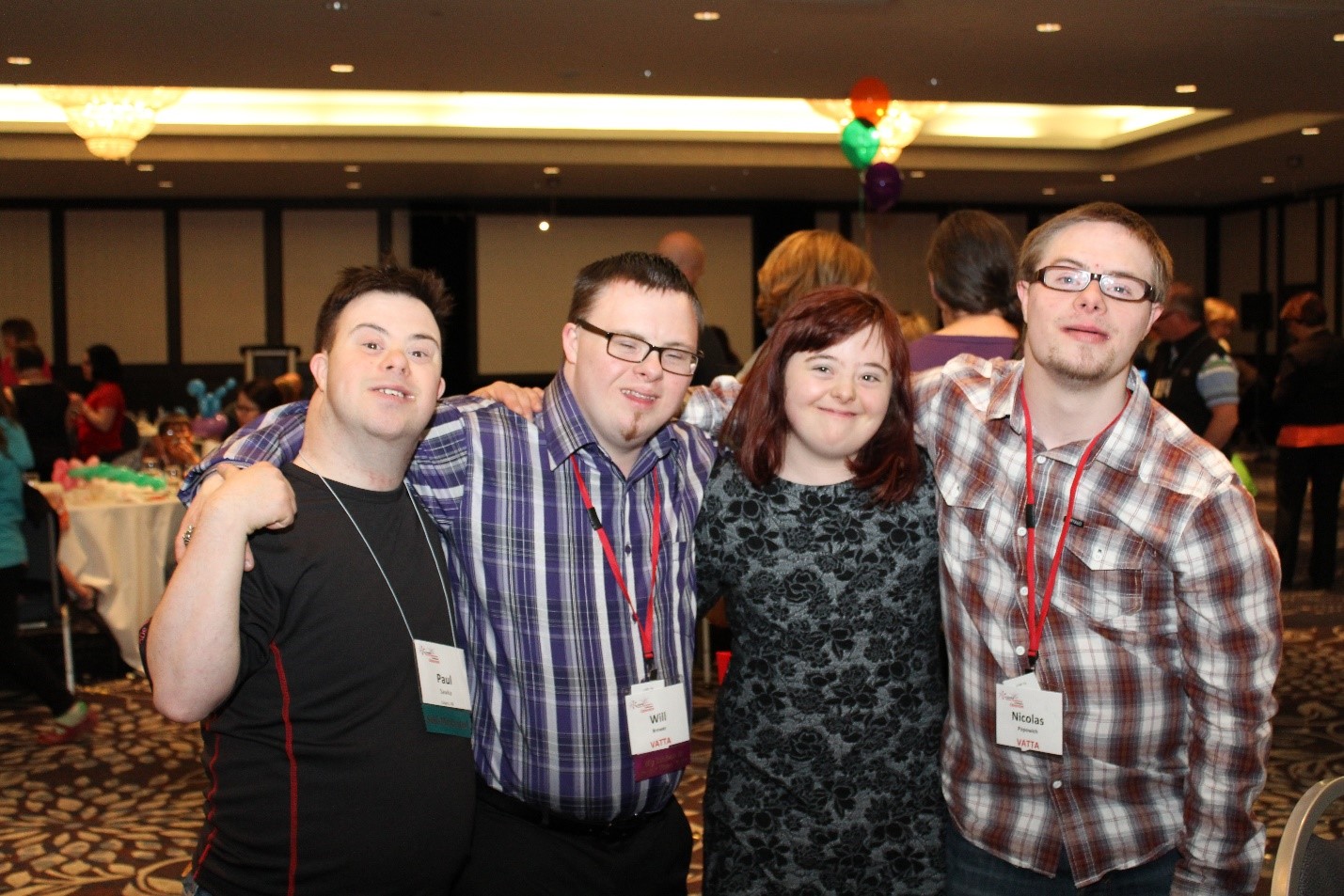Charity Spotlight: This blog post is part of our charity spotlight series and was provided by Kaitlyn Pecson, Communications Manager at the Canadian Down Syndrome Society.

“I am Paul Sawka. I am the Awareness Leader at Canadian Down Syndrome Society. I am 30 years old. I am very active. I’m a working guy. I have a good social life, a good personal life, and I have great support and family.”
That’s how Paul describes himself. But to his co-workers and friends? We know him as funny, hardworking, a role model, confident, tenacious, determined, smart, and underestimated. Paul also has Down syndrome, but that’s just part of what makes him Paul.
Having worked at the Canadian Down Syndrome Society (CDSS) for five years this April, Paul has become integral part of the CDSS team. He works with every department—answering phones, mailing letters and packages, writing thank you letters and blogs, and acting as the face of the CDSS at charity events. Paul usually arrives early to work, is rarely sick, and is always there to make sure we’re all in line if things get a little too silly in the office. If our staff is feeling a bit stressed, Paul is always ready to deliver the perfect joke. He’s also first to initiate team dance parties and the first to let everyone know, right at 12:00 p.m., that it’s lunch time.

In many ways, Paul embodies our core message at CDSS, “see the ability.” We focus on seeing people for who they are at CDSS, not the labels placed on them which can sometimes be the greatest challenge a person with Down syndrome can face. At CDSS, we work to change the predetermined perceptions that underestimate the potential and abilities of those with Down syndrome.
It’s More than Just a Label
Down syndrome is a naturally occurring chromosomal arrangement that has always been part of the human condition. The occurrence of Down syndrome is universal across all racial and gender lines, and it is estimated to be present in approximately one in 781 births in Canada.
While most people have 46 chromosomes, those with Down syndrome have 47 because of a triplicate of the 21st chromosome. The most common type of Down syndrome—trisomy 21—happens randomly, with no known cause. There may be medical issues that are associated with Down syndrome, but Down syndrome itself is not a disease; people with Down syndrome do not need a cure. They need support, understanding, and opportunities.
We Make Self-Advocacy a Priority
CDSS supports people with Down syndrome in all stages of their life. From answering phone calls from new parents who just discovered their baby has Down syndrome, to helping employers gain the tools to hire self-advocates through our upcoming Human Resources program called Shift, we try to ensure all people with Down syndrome are offered opportunities to succeed and lead great lives.
CDSS also gives a voice to people with Down syndrome. Our Voices At The Table for Advocacy (VATTA) is CDSS’s steering committee, comprised of adults with Down syndrome from across Canada. Members of VATTA inform CDSS on issues important to people with Down syndrome in their own communities. Meetings with VATTA eventually led to the creation of Mind and Body, a CDSS resource focused on supporting adults and teenagers with Down syndrome by providing information and support about their bodies, relationships, growing up, and their safety.

Paul and the members of VATTA are amongst the 45,000 other Canadians with Down syndrome who all contribute to their communities in their own important ways.
With a staff of just nine people supporting Canadians with Down syndrome, and the people who love and support them, sometimes it can be overwhelming. But Paul is always there to keep the team inspired, laughing, and moving forward. Having Paul on the team is a big part of realizing CDSS’s vision—a Canada where all people are valued, fully participating citizens.
So what’s Paul’s favourite part about working at CDSS?
“Well, that’s easy,” said Paul. “That would be spending time with my coworkers and my supporters. And number two would be being the CDSS’ greatest Awareness Leader.”
Leave a Reply